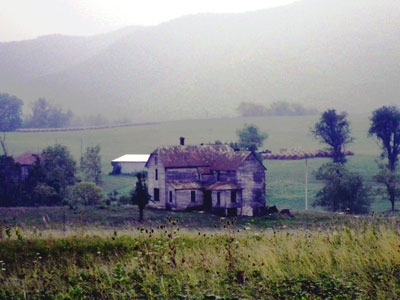All Nonfiction
- Bullying
- Books
- Academic
- Author Interviews
- Celebrity interviews
- College Articles
- College Essays
- Educator of the Year
- Heroes
- Interviews
- Memoir
- Personal Experience
- Sports
- Travel & Culture
All Opinions
- Bullying
- Current Events / Politics
- Discrimination
- Drugs / Alcohol / Smoking
- Entertainment / Celebrities
- Environment
- Love / Relationships
- Movies / Music / TV
- Pop Culture / Trends
- School / College
- Social Issues / Civics
- Spirituality / Religion
- Sports / Hobbies
All Hot Topics
- Bullying
- Community Service
- Environment
- Health
- Letters to the Editor
- Pride & Prejudice
- What Matters
- Back
Summer Guide
- Program Links
- Program Reviews
- Back
College Guide
- College Links
- College Reviews
- College Essays
- College Articles
- Back
Wuthering Heights by Emily Brontë
Very few novels have intrigued me as much as Wuthering Heights by Emily Brontë has, and I have read many great books in my life. It captures a significant theme of the Victorian Era, one that so many writers chose to overlook: death, destruction, and the melancholy gardens we sow.
Among other authors, Emily Brontë transformed the faux pas of a bad ending into an approachable- nay controversial- subject. Her novel helped revolutionize the overall tone of pre-contemporary literature.
Wuthering Heights was originally published in 1847, and authentically captures daily life in that time-period. There are scenes that many of us recognize as being entirely victorian: maids and manservants, ruffled dresses, and the diction of their everyday conversation; however, drops of reality sneak into this realistic portrayal of life as it was in the 1800s. Prejudice, abuse; premature death, hysteria; unseen killers hidden in the walls and beauty products.
Each flaw has a story that has finally revealed by scientists with knowledge of lead and formaldehyde. In just the same way, every character has a purpose... which is why less than twenty people can be seen from the beginning to the end. Intentionality reeves in between the binding of this enthralling novel.
Wuthering Heights is steeped in melancholy and draped in veils of woe. Readers follow Heathcliff across the moors of the UK. His story is much different than the romantic tale of Pride and Prejudice, where two people fall in love and eventually marry. Instead, the story is founded upon turmoil, which leads to inevitable failure, though it brazes the mark so often throughout its pages. It crafts an understanding of the phrase "too little, too late", which becomes the main focus of the entire story.
Heathcliff did not stir this on his own, at least not entirely; he is abused and neglected after his adoptive father passes, outcasted and named a "g*psy" and "bastard" due to his uncertain heritage. He resents most of his house mates, excluding the girl who opened- and tore- his heart: Catherine Earnshaw.
Readers learn and discover the truth about Heathcliff through memories recalled by Nelly, the house maid, a majority of the time. By the end, one is left wondering whether they pity, love, or hate Heathcliff, leaving many with a sense of familiar dread (this time, in literature rather than reality). The purposeful writing of Brontë is revealed again and again, but never more so than when one analyzes her incredible skill for building characters.
This book is disturbing at times, and I admit it; but this aspect adds depth and truth to an otherwise perfect novel. It has become my favourite book, and one I will recommend to others as long as I have strength to speak. The year that I first read it was the year I reread it 15-16 other times. It truly has a certain magnetism that pulled me towards it, and for that reason, I give it a 5 star rating.

Similar Articles
JOIN THE DISCUSSION
This article has 0 comments.
I hope you enjoy my review, and give Wuthering Heights a read!